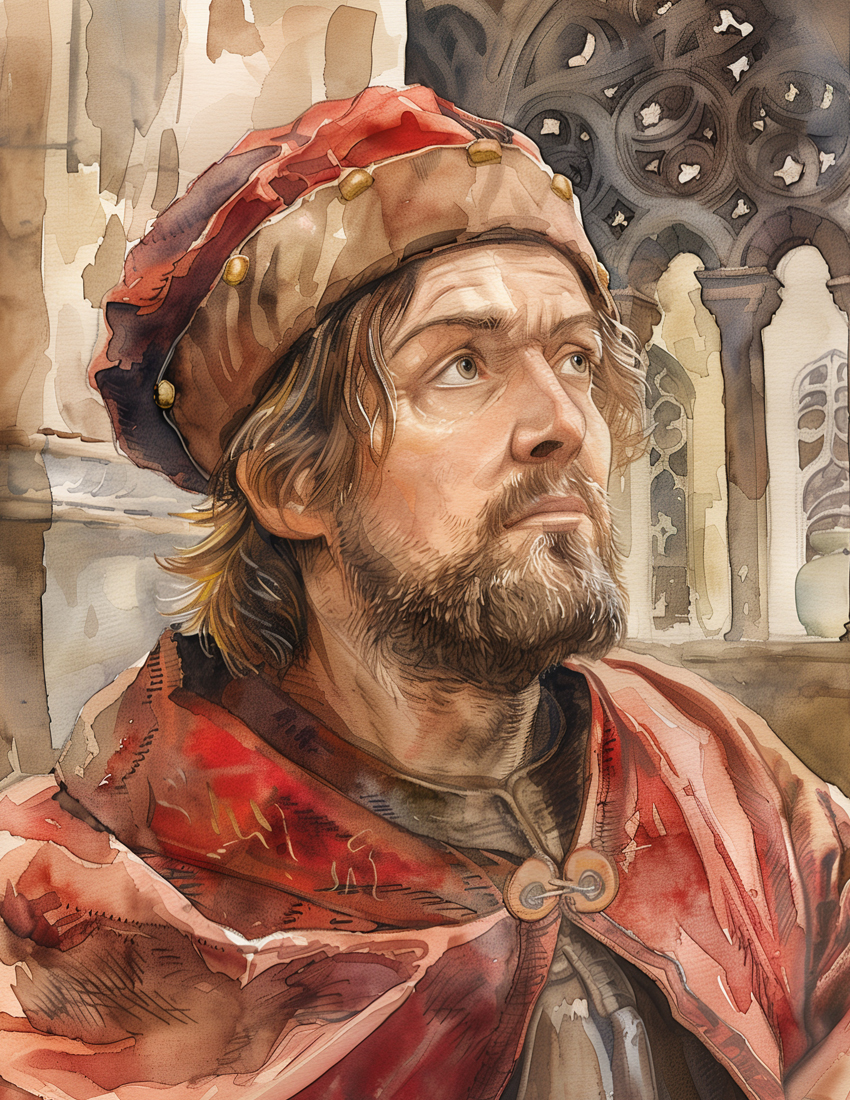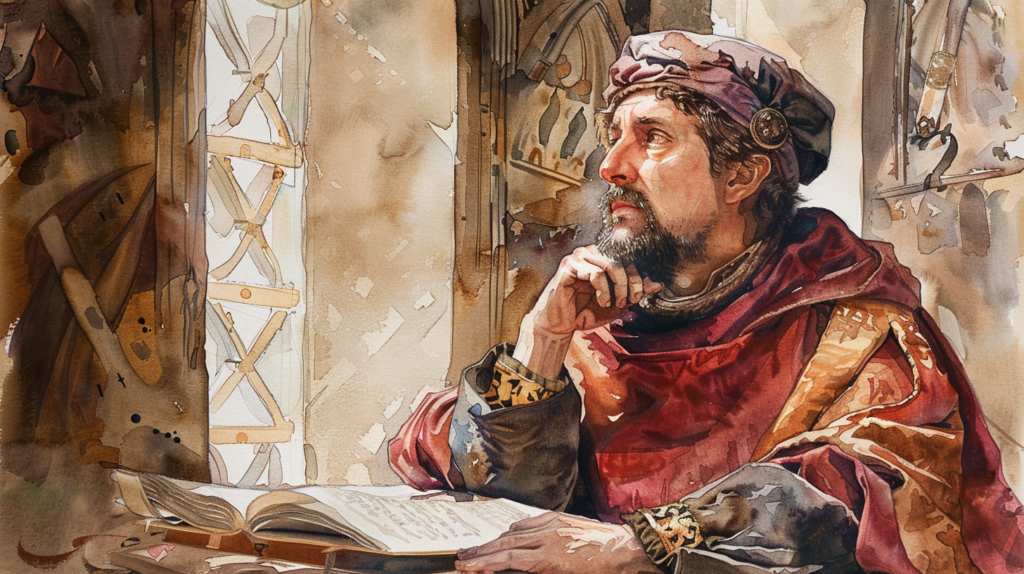Born: 760, Italy (some sources say Spain).
Died: January 18, 821, Angers, France.
Buried: Orléans, France.
Theodulf of Orléans

Hymns by Theodulf of Orléans
Theodulf of Orléans: A Visionary of the Carolingian Renaissance
Theodulf of Orléans, a poet, theologian, and bishop during the reign of Charlemagne and Louis the Pious, stands as a luminary in Christian history. His life and works not only shaped the religious and intellectual landscape of his time but also left an indelible mark on the Western Church.
From Visigothic Roots to Frankish Prominence
Born in Saragossa, Spain, between 750 and 760, Theodulf was of Visigothic descent. In the face of the Moorish occupation of his homeland, he sought refuge in the region of Aquitaine in southwestern Gaul. There, he immersed himself in study, honing his intellect and deepening his faith.
Theodulf’s brilliance did not go unnoticed. He caught the attention of the great Charlemagne himself, who recognized in this Spanish exile a kindred spirit – a man of deep learning, unwavering faith, and innovative ideas. In a move that would shape the course of Theodulf’s life and the Carolingian Renaissance, Charlemagne appointed him Bishop of Orléans around 798 and abbot of several monasteries, most notably Fleury-sur-Loire.
A Champion of Education and Reform
As a key player in Charlemagne’s court, Theodulf was at the forefront of the emperor’s ambitious reforms of the church and education. He journeyed to Rome in 786, where he was inspired by the great centers of learning. Fueled by this experience, Theodulf became a passionate advocate for the establishment of public schools across the Frankish empire.
But Theodulf’s vision extended beyond the walls of monasteries and cathedrals. He believed that education should be accessible to all, not just those in religious orders. His letters to abbots and bishops across the realm encouraged them to establish schools open to the wider public, a revolutionary idea for the time.
Theodulf’s commitment to learning was matched by his dedication to the purity of sacred texts. He worked tirelessly to edit and translate religious works, ensuring that the Scriptures and other important texts were accurately rendered from their original Greek and Hebrew. His meticulous scholarship played a crucial role in the preservation and dissemination of Christian literature during the Carolingian era.
A Poet and Hymnodist of Renown
Theodulf’s talents extended beyond the realms of theology and education. He was also a gifted poet and hymnodist, with around 80 of his compositions preserved to this day. His most famous hymn, “Gloria, laus et honor,” written in 820, is a Palm Sunday hymn based on Matthew 21:1–11, which recounts Christ’s triumphal entry into Jerusalem.
The hymn’s enduring popularity is a testament to Theodulf’s skill as a wordsmith and his ability to capture the essence of faith in lyrical form. It was later translated into English by the Anglican clergyman John Mason Neale, under the title “All Glory, Laud and Honour,” and continues to be sung in churches around the world.
All glory laud and honor to Thee Redeemer King
To Whom the lips of children made sweet hosannas ring
Thou art the King of Israel Thou David’s royal Son
Who in the Lord’s name comest the King and blessed One!
Theodulf’s poetic works, alongside his theological and educational contributions, demonstrate the breadth of his intellect and the depth of his devotion. They serve as a reminder that the pursuit of knowledge and the expression of faith are not mutually exclusive, but rather complementary aspects of a life well-lived.
The Libri Carolini and the Debate Over Images
Perhaps one of Theodulf’s most significant contributions to Western Christian thought was his authorship of the Libri Carolini, a treatise that addressed the complex issue of religious images. In response to a mistranslation of the acts of the Second Council of Nicaea, which seemed to condone the worship of images, Charlemagne commissioned Theodulf to articulate the Frankish church’s position.
The resulting work, composed in Charlemagne’s name, walked a careful line. It affirmed the value of religious art for instruction, ornamentation, and remembrance, while strongly condemning the adoration of images. Theodulf argued that only God was worthy of worship, while saints and sacred objects were to be venerated and honored.
The Libri Carolini stands as a testament to Theodulf’s theological acumen and his ability to navigate the nuances of faith and practice. It remains, in the words of one scholar, “much the fullest statement of the Western attitude to representational art that has been left to us by the Middle Ages.”
A Legacy of Learning and Faith
Theodulf’s life was not without its trials. Accused of treason under Louis the Pious, he was exiled and stripped of his bishopric. Yet even in his final years, his commitment to God and to the pursuit of knowledge remained unshakable.
Today, we remember Theodulf of Orléans as a man ahead of his time – a visionary who understood the transformative power of education, the importance of textual accuracy, and the role of art in the life of faith. His legacy endures not only in the physical remains of his villa at Germigny-des-Prés but in the very fabric of Western Christianity.
As we reflect on the life and works of this remarkable man, may we be inspired to emulate his love of learning, his dedication to truth, and his unwavering commitment to the Gospel. In a world that often seems shadowed by ignorance and division, may the light of Theodulf’s example continue to guide us, illuminating the path to a deeper understanding of God’s word and a richer experience of His grace.


